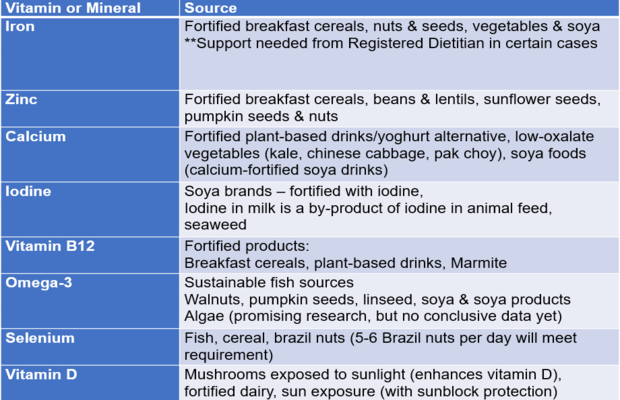
Sustainable diets? Plant-based meals? Vegetarian? Vegan? Flexitarian? You may have come across some of these terms as we become more aware of the importance of an environmentally friendly lifestyle.
Some people brush it off as the next “health craze”, while others consider it very important to consider the impact the food industry and our eating patterns have on our planet.
What is a sustainable diet?
In 2010 researchers defined a sustainable diet as follows: “These diets have a low environmental impact; they contribute to food and nutrition security and a healthy life for both present and future generations.
"Sustainable diets are protective and respectful of biodiversity and ecosystems, culturally acceptable, accessible, economically fair and affordable, nutritionally adequate, safe and healthy, while optimising natural and human resources.”
Why do we need to be following a sustainable diet?
The current eating patterns in our country are not sustainable and we need to start making changes to our lifestyle patterns to address this problem. South Africa has undergone a nutritional transition, and we now have a problem of a double burden of disease.
This means that there is an alarming number of people that are both overweight and malnourished due to the overconsumption of nutrient poor foods such as refined carbohydrates, unhealthy fats and processed meats. The result is a high prevalence of chronic lifestyle diseases of, such as cardiovascular disease, type 2 diabetes and hypertension.
What is the carbon footprint of our food?
The environmental impact of our food systems is alarming, as 30% of all global greenhouse gas emissions originate from food systems. It is estimated that one third of all food produced is wasted, which is about 1.3 billion tons of fruit, vegetables, grains, meat, dairy or seafood that have been lost in transport, spoiled or thrown away at home, schools and restaurants.
This amount of food would be enough to feed every undernourished person on this planet. Although it may seem like it is only a humanitarian concern, it is also one that drastically impacts our environment. Not only does producing the food require energy, but the waste is dumped on landfill sites where it is left to rot and produce methane gas (one of the greenhouse gases).
Replacing beef with beans would reduce the worldwide environmental footprint: to produce 1 kg protein from kidney beans requires, 18 x less land, 10 x less water, 9 x less fuel, 12 x less fertilizer, and 10 x less pesticide in comparison with 1kg of protein from beef.
What is a plant-based diet?
A plant-based diet (PBD) seems to better fit the criteria of a sustainable diet. Often it is misunderstood as being vegan or vegetarian, yet it doesn’t need to be. A PBD is one that gives preference to plant-based proteins (e.g. legumes), sustainably sourced fish (e.g. hake, sardines and snoek) and reducing the intake of red meat, processed meat (e.g. bacon), chicken and dairy products.
Is a PBD nutritionally adequate?
This nutritional adequacy of a PBD often gets questioned, because if you're reducing the intake of meat and chicken then you can’t possibly be meeting your nutrient requirements. The table below shows the contrary to be true by providing a summary of the key nutrients that are often questioned when adopting a PBD:

The protein requirement for an average adult is 0.8g protein per kg body weight (0.8g/kg). This averages to roughly 56g per day for men and 45g per day for women. A 90g serving (one third of a cup) of low fat cottage cheese provides 14.1g of protein and 30g roasted edamame beans provide 13.3g protein, as examples of sources of protein.
Summary
Unfortunately, there is a lack of awareness about the huge environmental impact our food systems have on our planet. There is a misunderstanding that eating a PBD would be inconvenient, difficult and more expensive, but the real challenge is changing the entrenched food culture of millions of people.
Education on all levels of society and industry needs to happen for affordable, accessible plant-based food options to become the norm. It's going to take time to break the habits of centuries, but the sooner this happens, the better, as animal-based foods are becoming increasingly wasteful and expensive to produce.
Image credit: iStock




 Publications
Publications
 Partners
Partners










